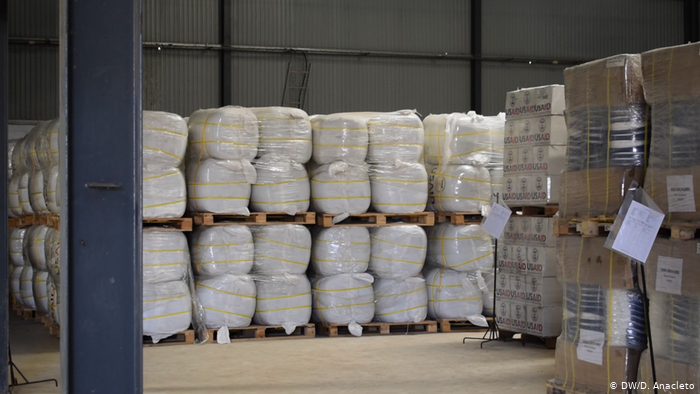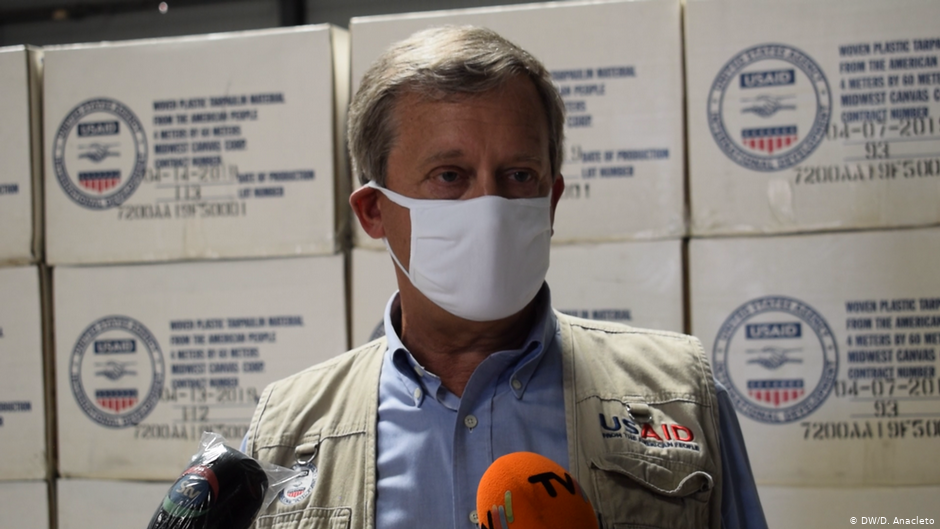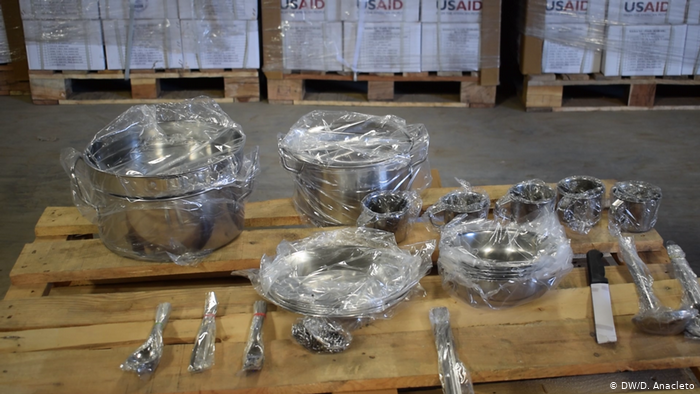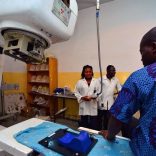Mozambique: Sporadic cases of mpox continue to emerge in Niassa province
U.S. delivers aid to displaced people from Cabo Delgado

The United States handed over shelters, blankets, water storage and cooking kits this Tuesday to families fleeing the armed attacks in the Mozambican province of Cabo Delgado.
In a first phase, the products will be directed to 8,000 families in need, displaced by the armed attacks and spread across the provinces of Cabo Delgado, Nampula and Zambézia.
During the delivery of donations in Pemba this Tuesday (25.08), John Grabowski, regional advisor for the North American development aid agency USAID, said that the USA would continue to support Mozambicans and work to reduce the suffering of those displaced.

“Much depends on the Mozambican government, but the US government and the American people are always ready to advance humanitarian assistance,” he said.
International help
The armed attacks in Cabo Delgado, which began in 2017, have already led to the flight of more than 250,000 people.
Insurgents have destroyed public and private infrastructure, including housing and economic enterprises. Many families have seen their livelihoods destroyed and do not know where they will be able to restart their lives.
“I left Macomia to flee the war, because there was nowhere to stay and nothing to eat. I came here with my seven children to Pemba, to my brother-in-law’s house,” one displaced woman told DW Africa.

The US package also supports the economic recovery of victims. “We thought about ways to support displaced families’ livelihood, so that they have a certain income,” the local USAID representative said.
This month, experts from the Institute for Security Studies called for urgent intervention by the African Union and the Southern African Development Community on the Cabo Delgado issue. Last week, SADC heads of state pledged to support Mozambique in the fight against terrorism.
USAID advisor John Grabowski warns that humanitarian organisations are finding it difficult to access some areas in the north of the province, the requisite security conditions for organisations to assist the families there being lacking.
“The humanitarian community is saying that it is not safe [to work in these places], and we cannot put humanitarian aid workers’ lives at risk,” he explained. “Donors, including the United States government, are concentrating their activities mainly in the southern districts, hoping for an opening going forward to effectively reach those displaced in the northern districts, which are less secure.”












Leave a Reply
Be the First to Comment!
You must be logged in to post a comment.
You must be logged in to post a comment.